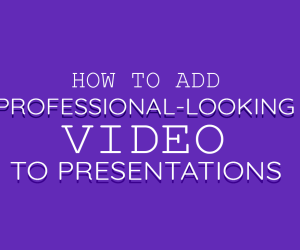No doubt, audience’s attention is at its peak in the very beginning of any session, be it a speech, seminar, Webinar or a presentation. And, you definitely intend to retain that interest till the time you are on stage. So, implementing techniques like usage of anecdotes, rhetoric, surprise facts, etc is obvious. But, have you ever thought about the other end of the speech, viz, the closing part.
Have you ever paid consideration into the right approach that will emphasize your message, while making your speech extraordinary? Now, please don’t say that you were planning on raising two or three of those irrelevant questions to boggle the audience’s mind, followed by a plain “Thank You!”, because that’s not enough!

At least if you consider the present day scenario when listeners have become far more thoughtful, then the standard “call to action” approach is neither powerful nor satisfying. Rather, the end should be far more meaningful, summarizing and resolution-oriented. Say for instance, if you have prepared a speech of around 20 minutes, then at least a 2-3 minute conclusion is well deserved to strike the right balance.
That’s not the end yet! Alongside of course planning a concise speech layout, there are other things to be considered for ending your speech with finesse. These are…
- Using the title can prove to be a bit intriguing, as the ending words mobilize your audience thus, creating a sort of symmetry. Using a title or something like “we have finally reached from where it all started”, followed by your message; makes the audience think, connect and retain the entire idea for long.
- Knowing purpose of your speech is again extremely crucial. Say for instance, if your speech is inclined towards taking some action, then it is suggested to raise a challenge or use some effective words that will eventually serve as your conclusion, besides obviously making them think.
- If in case you are sitting amidst an audience of intellectual minds, who need to be served the food of thought, then this one tip will certainly work for you. Bring innovation by quoting a few lines from some famous book or movie that can act as a pedal to lift the credibility of your speech.
Remember, it’s not always about the first impression! Closing on a good note is as important as it is to begin with some exciting words. So, plan a fine ending to ensure that your speech on the whole lives up to audience’s expectations.



